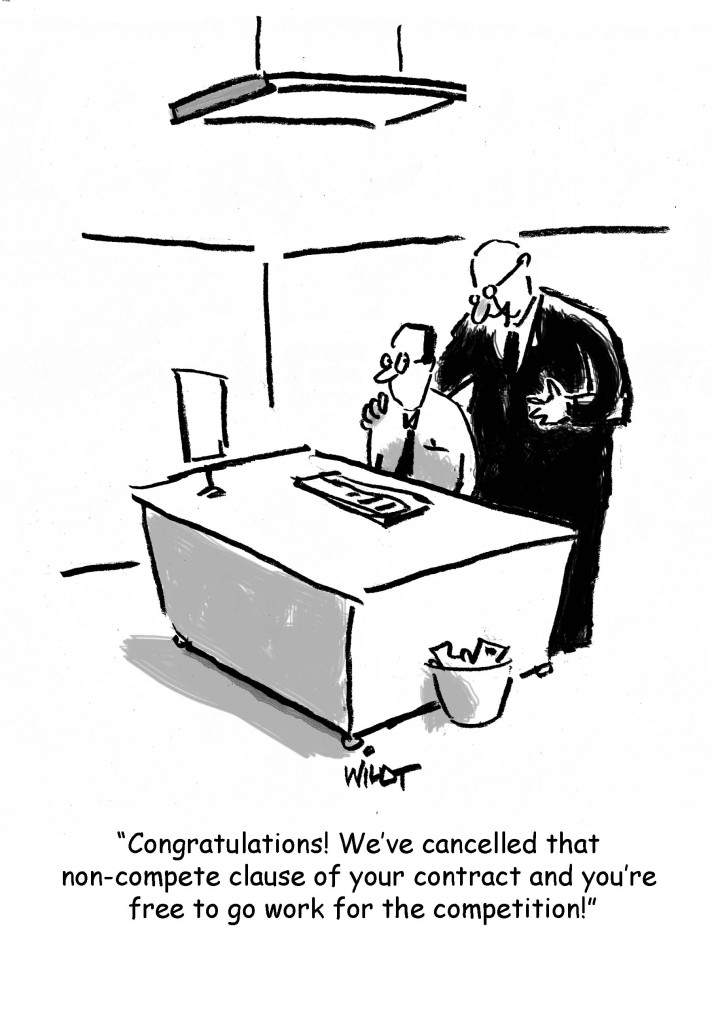 Non-competes have always puzzled me. A non-compete agreement is usually signed by an employee who agrees not to start or join another company that competes with their employer.
Non-competes have always puzzled me. A non-compete agreement is usually signed by an employee who agrees not to start or join another company that competes with their employer.
It is possible that an employee could, using knowledge gained at one employer, take the intellectual property and skills to a competitive employer. However, as reported in the New York Times, non-compete clauses are showing up in some of the most unusual occupations, like event planners, chefs, and camp counselors.
Jimmy John’s, the fast-food sandwich shop, requires their rank-and-file sandwich makers to sign a non-compete that they will not work at another business that earns 10% or more of its revenue from sandwiches and is located within three miles of a Jimmy John’s for a two-year period.
Do They Work?
English Common Law found such an agreement unenforceable. However, only two states, California and North Dakota, currently do not allow non-compete agreements. A non-compete agreement could prevent you from working in the only industry you have the skills to work in.
But the interesting point is not that an increasing number of employers are finding that the training they provide employees could provide their competitors with a competitive advantage.
The interesting point is that Jasjit Singh, Associate Professor of Strategy at INSEAD, has discovered that in areas where non-compete agreements are not enforceable, i.e. California’s Silicon Valley, this helps to create a collaborative environment where everyone does better. [Read more here]
Conversely, in Michigan where the law against non-competes has changed, there was an exodus of inventors and the best creative minds.
As Singh points out, not all employees are the best fit for all companies. Tying an employee down to your employment could cost you your competitive advantage.
